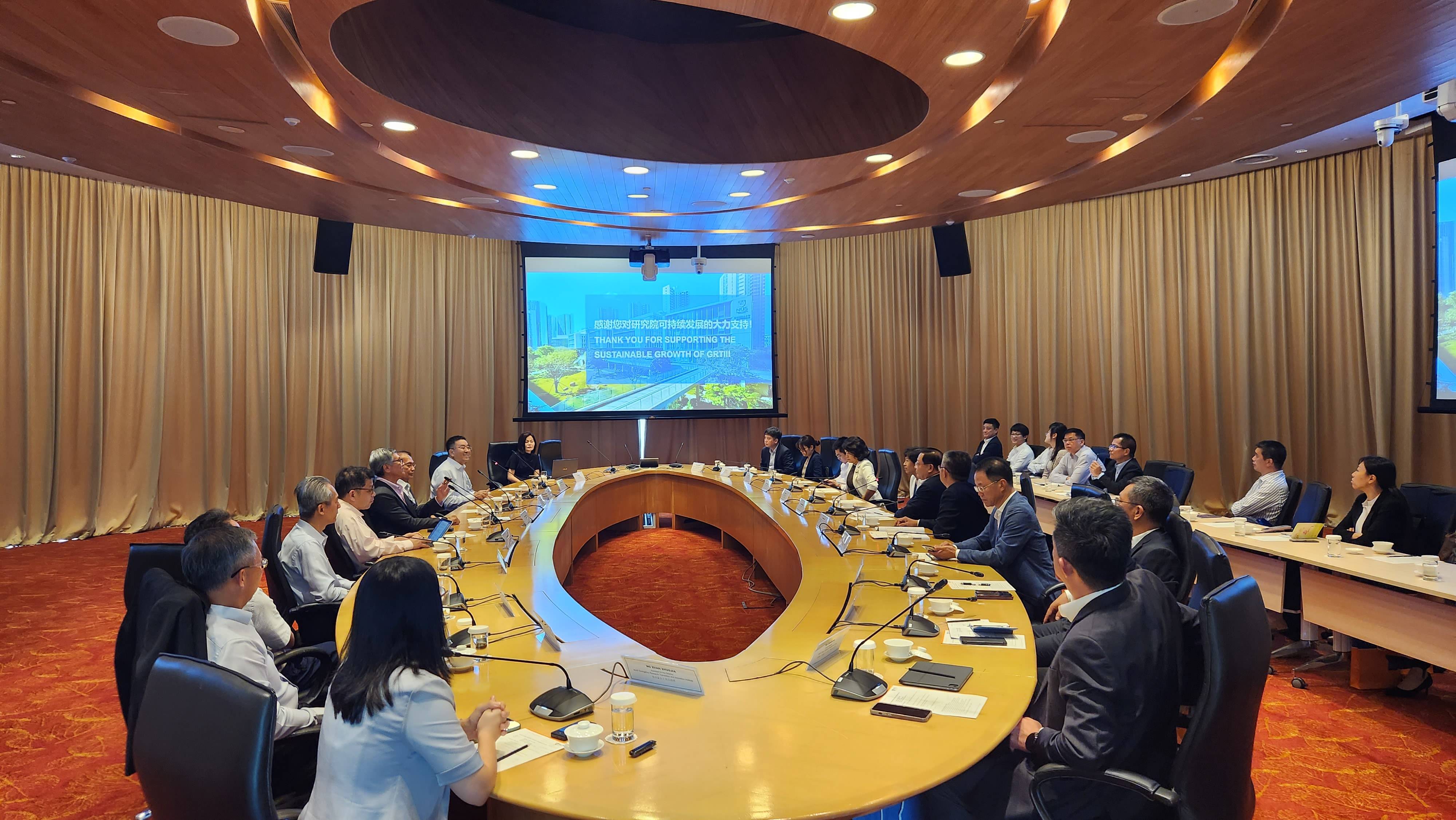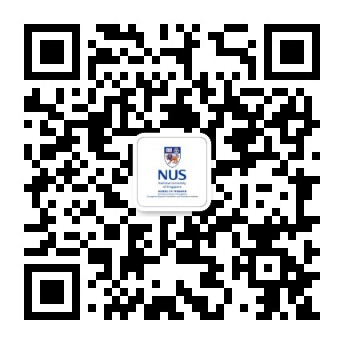On November 12, Guangdong Province Governor Wang Weizhong led a delegation to visit the National University of Singapore (NUS). The NUS President, Professor Tan Eng Chye, and the university's leadership team extended a warm welcome to the visiting delegation. The delegation also included Executive Vice Mayor of Guangzhou Chen Jie, Science and Technology Counsellor of the Chinese Embassy in Singapore Yu Haiying, President of the NUS GRTII Council and Emeritus Deputy President of the National University of Singapore Professor Hang Chang Chieh, Associate Vice President (Strategic Partnership) of NUS Professor George Loh, Director of the NUS GRTII Professor Meng Qiang, and Associate Director (Research) of NUS GRTII, Associate Professor Yu Haoyong.
During the meeting, NUS President Tan Eng Chye first extended a warm welcome to Governor Wang and his delegation. Following this, the NUS representatives provided a detailed introduction to the university's history, global rankings, disciplinary strengths, and international strategy. They also highlighted that NUS has been engaged in strategic cooperation with China for over 30 years, having established research institutes in Suzhou, Chongqing, Fuzhou, and Guangzhou. These institutes have become important bridges for China-Singaporean cooperation in the field of industry-academia-research collaboration.

Theme Report: Development of the NUS Guangzhou Research Translation and Innovation Institute
Professor Meng Qiang, Director of NUS GRTII, provided an in-depth report on the development, directions, and future plans of NUS GRTII.
The institute, aligned with the industrial needs of Guangzhou and Huangpu District, has identified key research areas such as smart cities, information and communications technology, electronics, advanced manufacturing, biosciences, and financial technology. NUS GRTII has brought in outstanding faculty from NUS to serve as key researchers, and by 2024, it has applied for multiple major municipal-level scientific research projects.
In terms of talent development, the institute has launched PhD and master's programs and has also established several high-level management training courses. These initiatives are designed to meet the development needs of businesses in the Guangdong-Hong Kong-Macao Greater Bay Area and provide strategic human resources and intellectual support for regional development.
In terms of innovation and entrepreneurship, NUS’s BLOCK71 incubation platform has been introduced at NUS GRTII in Guangzhou. Leveraging NUS's strong capabilities and the global incubation network and resources of BLOCK71, the BLOCK71 Guangzhou Innovation Incubation Platform has successfully incubated 11 start-up companies.
Additionally, the institute has established strategic partnerships with 14 leading industry enterprises and is gradually developing pathways from talent cultivation to scientific research application and industrial practice, thus better serving the local industrial development.
Director Meng introduced the development plans of BLOCK71 Guangzhou to Governor Wang. President Tan also provided a detailed overview of the BLOCK71 platform’s naming history, global development, and how NUS uses this platform to support start-ups in Southeast Asia and the Chinese market.
Interactive Exchange: Discussing Future Development
Governor Wang Weizhong acknowledged the achievements of the institute in talent cultivation, scientific research collaboration, and enterprise incubation. During the bilateral cooperation joint committee meeting held on November 11 between senior leaders of China and Singapore, Governor Wang also reported on the progress of the Guangzhou Knowledge City project, including updates on NUS GRTII. He emphasized that Guangdong Province and Guangzhou City will fully support the institute’s future development.
Governor Wang stated that Guangdong has made significant investments in education and research, ranking first in innovation capacity in China for eight consecutive years. The institute's research areas align well with the key industries that Guangdong is focusing on for development. He expressed his expectation that the institute will serve as a bridge to promote broader cooperation between Guangdong and Singapore.
Executive Vice Mayor of Guangzhou Chen Jie pointed out that both Guangdong Province and Guangzhou City attach great importance to their cooperation projects with NUS. Over the past year, significant achievements have been made in talent selection and cultivation. Vice Mayor Chen emphasized that, following the successful convening of the Singapore-China Joint Committee, Guangzhou will prioritize supporting NUS GRTII to play a more significant role in innovation incubation and the promotion of high-tech industries.
Vice Mayor Chen also stated that the deep historical and cultural ties between Guangzhou and Singapore provide a unique advantage for bilateral cooperation. Guangzhou will actively respond to the expectations of the Governor and the NUS President, ensuring the successful implementation and service of NUS GRTII’s projects, making a meaningful contribution to Guangzhou under the unified guidance and leadership of the Joint Committee.
Professor Tan expressed his gratitude to Governor Wang, Vice Mayor Chen, and the Chinese Embassy in Singapore for their attention to NUS, affirming that NUS will continue to use the Guangzhou Innovation Institute as a link to contribute Singaporean expertise to the development of Guangdong.
Professor Meng thanked Governor Wang, Vice Mayor Chen, and the Guangzhou Huangpu District and China-Singapore Guangzhou Knowledge City Administrative Committee for their guidance and support. Professor Meng noted that Guangzhou is a vibrant city with a strong atmosphere for innovation and entrepreneurship, and a promising future for industry-academia-research development.
Looking forward, the institute will continue to leverage the strengths of the Greater Bay Area and link Guangzhou and Singapore, utilizing its scientific research and resource advantages to assist in promoting scientific innovation and talent exchanges between Guangdong and Singapore, contributing to the high-quality development of Guangdong Province and Guangzhou City.


